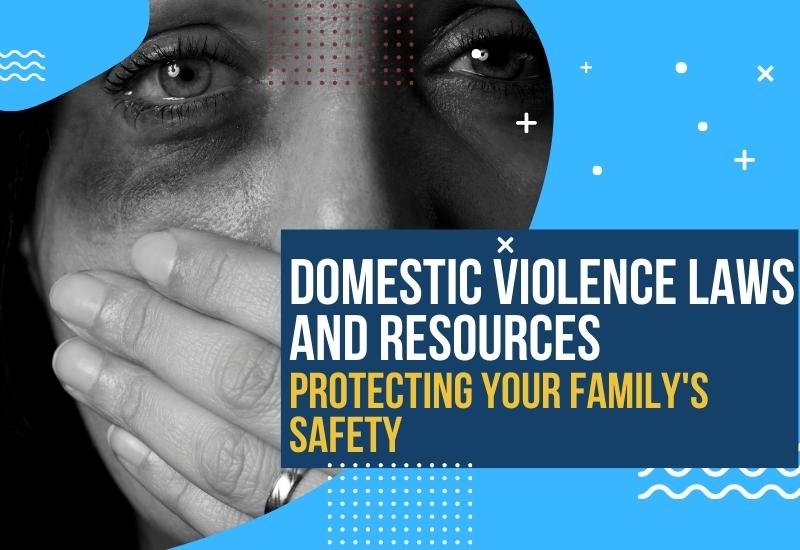Domestic violence is a pervasive issue affecting millions of individuals worldwide. Understanding the legal protections available is crucial for survivors seeking safety and justice. This guide provides an overview of domestic violence, legal remedies, and resources to support survivors.

Understanding Domestic Violence
Domestic violence encompasses physical, emotional, psychological, and sexual abuse within intimate relationships. It can occur between spouses, partners, family members, or cohabitants. Recognizing the signs of domestic violence is the first step toward seeking help.
Types of Domestic Violence
- Physical Abuse: Hitting, slapping, choking, or any use of physical force.
- Emotional Abuse: Verbal insults, threats, intimidation, or manipulation.
- Psychological Abuse: Isolation, stalking, or controlling behaviors.
- Sexual Abuse: Non-consensual sexual activities or coercion.
Legal Protections for Domestic Violence Survivors
Restraining Orders
A restraining order, also known as a protective order, is a legal injunction that restricts an abuser from contacting or approaching the survivor. Different types of restraining orders include:
- Emergency Protective Orders (EPO): Issued quickly in emergency situations to provide immediate protection.
- Temporary Restraining Orders (TRO): Short-term orders that provide protection until a court hearing.
- Permanent Restraining Orders: Long-term protection, typically issued after a court hearing.
Criminal Charges
Domestic violence can lead to criminal charges against the abuser. These charges may include assault, battery, stalking, or sexual assault. Law enforcement can arrest and prosecute abusers, providing a legal route for survivors to seek justice.
Civil Lawsuits
Survivors can file civil lawsuits against their abusers for damages resulting from the abuse. This can include compensation for medical expenses, lost wages, pain and suffering, and emotional distress. Civil lawsuits hold abusers financially accountable for their actions.
Steps to Take if You Are a Victim of Domestic Violence
Seek Immediate Safety
If you are in immediate danger, call emergency services (911 in the United States) to seek help from law enforcement. Find a safe place to stay, such as a shelter, a friend’s house, or a family member’s home.
Document the Abuse
Keeping detailed records of the abuse is crucial. Document incidents with dates, times, descriptions, and any evidence such as photographs, messages, or witness statements. This documentation can be vital in legal proceedings.
Obtain a Restraining Order
To obtain a restraining order, visit your local courthouse or contact a legal aid organization for assistance. Fill out the necessary forms, provide evidence of the abuse, and attend the court hearing to explain your situation to the judge.
Contact a Lawyer
An experienced attorney can provide legal advice and representation. They can help you navigate the legal system, file for a restraining order, and pursue criminal or civil charges against your abuser.
Resources for Domestic Violence Survivors
Domestic Violence Hotlines
Domestic violence hotlines offer confidential support and information. They can connect survivors with local resources, shelters, and legal assistance. Some hotlines include:
- National Domestic Violence Hotline (USA): 1-800-799-SAFE (7233)
- National Coalition Against Domestic Violence (USA): 1-303-839-1852
- Women’s Aid (UK): 0808 2000 247
Shelters and Safe Houses
Shelters and safe houses provide temporary housing, food, and support services for survivors and their children. They offer a secure environment for those escaping abuse.
Counseling and Support Groups
Counseling and support groups provide emotional support and healing for survivors. Professional counselors and peer support groups can help survivors process their experiences and rebuild their lives.
Legal Aid Organizations
Legal aid organizations offer free or low-cost legal services to domestic violence survivors. They can assist with obtaining restraining orders, filing for divorce, and pursuing custody of children.
Conclusion
Domestic violence is a serious and pervasive issue, but survivors have access to a range of legal protections and resources. By seeking immediate safety, documenting the abuse, obtaining restraining orders, and utilizing available resources, survivors can find safety and justice. It is essential to remember that help is available, and taking action can lead to a safer and more secure future.









